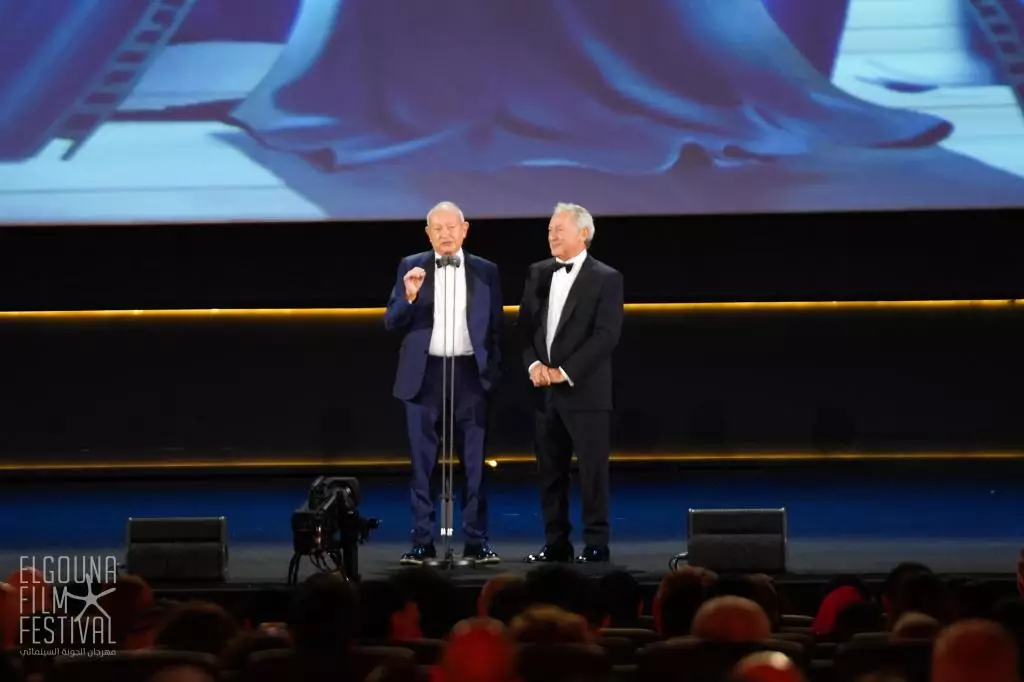The El Gouna Film Festival, a notable cultural fixture in Egypt, has once again opened its doors, but not without controversy. The festival kicked off this year amidst fervent calls for peace in the region. The shifting sociopolitical landscape of the Middle East, particularly with renewed violence in Gaza and Lebanon, adds a somber backdrop to what is often a celebratory event. As filmmakers gather to showcase their work, the festival has been thrust into the spotlight not only for the films it presents but for the surrounding issues of censorship and artistic freedom.
The festival’s opening was marred by the last-minute withdrawal of Abdelwahab Shawky’s short film, *The Last Miracle*, originally slated to kick off the event. The removal, attributed to the Egyptian General Authority for Censorship of Works of Arts, underscores the pervasive influence of censorship in the region. Shawky’s film, based on a story by the late Nobel laureate Naguib Mahfouz, touches upon themes of spiritual exploration and loss—subjects many speculate might have touched a nerve with authorities, especially considering its subtext relating to Palestine.
In a surprising turn of events, the festival announced that the Croatian short film *The Man Who Could Not Remain Silent*, which recently won the prestigious Cannes Palme d’Or, would instead serve as the opening film. This abrupt change has raised questions regarding artistic expression in Egypt, particularly in the context of a film focusing on poignant socio-political issues.
Tarek El Shennawi, a prominent film critic in Egypt, posited that while there may not be an official admission of censorship, the circumstances surrounding the film’s removal strongly suggest its content was deemed problematic. The incident reflects broader patterns of censorship in the Arab world, where films that question political narratives or challenge societal norms often face significant barriers in distribution and exhibition.
Abdelwahab Shawky’s cinematic narrative involves a protagonist receiving a phone call from a deceased Sheikh, leading him on a transformative journey. This narrative thread alludes to the profound psychological and spiritual struggles faced by individuals in contemporary society—a theme that resonates following past traumas, such as the Six-Day War and its aftermath. The intent behind Shawky’s narrative exploration could be perceived as controversial, particularly within societal climates fraught with political tension.
In light of these events, one is compelled to ask: when does a creative vision become at odds with a state’s political realities? The retraction of *The Last Miracle* also illustrates the challenges filmmakers face when attempting to navigate complex socio-political landscapes. While festivals like El Gouna aim to celebrate cinematic artistry, the implications of censorship can lead to a stifled creative environment that ultimately limits public discourse around vital issues.
The festival’s founder, Naguib Sawiris, emphasized the urgent necessity for peace during the opening address. His reflections resonate in an era marked by strife not only in Palestine but also across various global contexts, including Lebanon and Ukraine. By articulating the power of cinema to convey profound messages, Sawiris harnesses this cultural platform to advocate for global reflection and compassion.
In a year where attendees noted a more subdued atmosphere compared to the glitzy celebrations of past editions, it becomes evident that the festival is earmarked by the weight of current world conflicts. The absence of ostentatious fashion and the lack of an official red carpet further symbolize this shift in tone amidst ongoing humanitarian crises.
The Future of El Gouna: Between Celebration and Reflection
Running from October 24 to November 1, this year’s El Gouna Film Festival features 77 films from 32 countries, engaging diverse filmmakers and international narratives. However, the question of artistic freedom looms large over the festival’s offerings. The combination of imminent global conflict and local censorship emphasizes the importance of platforms like El Gouna for advancing crucial conversations through the realm of film.
As the festival unfolds, it is critical that participants, spectators, and the global community pay close attention to the messages being shared, deciphering where art ends and the complexities of political realities begin. The El Gouna Film Festival, while a celebration of cinematic achievements, ultimately serves as a poignant reminder of the challenges artists face and the vital nature of artistic expression in advocating for peace and understanding in a fractious world.

Leave a Reply